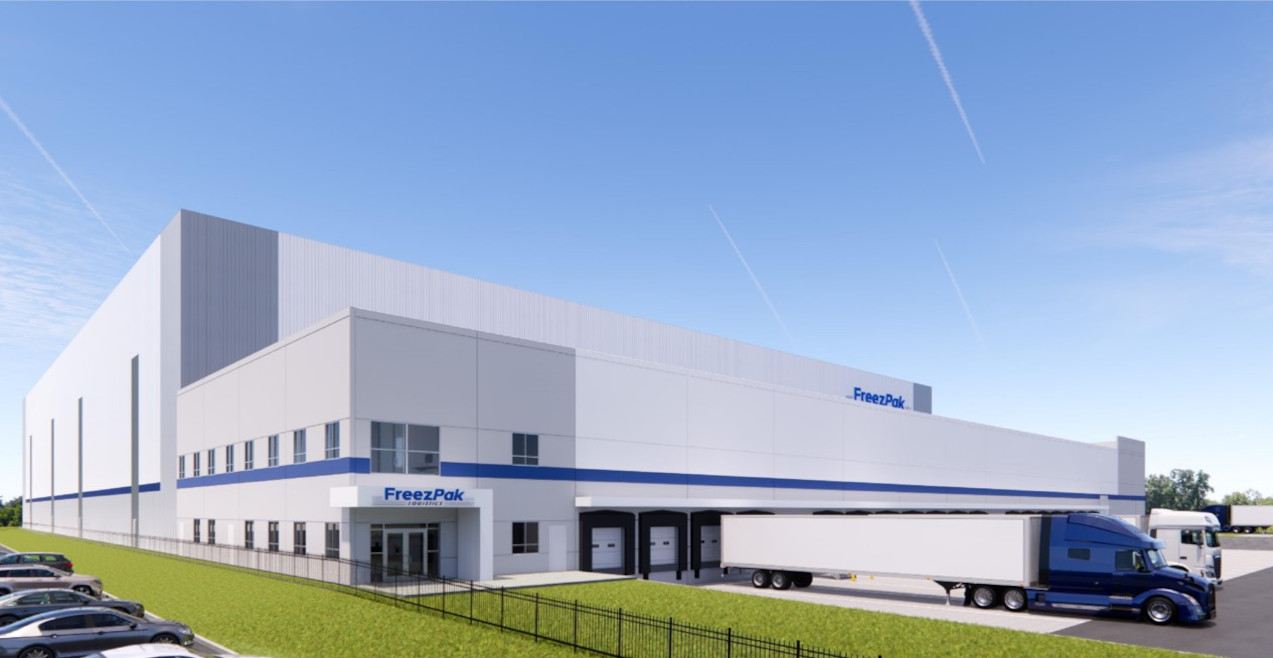Refrigerated warehousing in Pennsylvania plays a crucial role in supporting the state’s thriving agricultural and food processing industries. Pennsylvania, with its strategic location, depends on a network of advanced refrigerated storage facilities to store and distribute various temperature-sensitive products. In this blog, we’ll delve into the world of refrigerated warehousing in Pennsylvania, shedding light on essential statistics, educational opportunities, and key insights that underpin this thriving industry.
Chilling Facts: The Refrigerated Warehousing Scene in Pennsylvania
Key Statistics:
- The refrigerated warehousing industry in Pennsylvania is a significant contributor to the state’s economy, boasting a valuation of over $X billion in 2021. This industry employs a substantial workforce and offers considerable revenue opportunities.
- These storage facilities in Pennsylvania handle an impressive volume of goods, including agricultural produce, dairy products, pharmaceuticals, and frozen foods. Annually, these facilities manage approximately X million tons of perishable products.
- The demand for refrigerated storage space in Pennsylvania continues to grow, with an annual growth rate of X%. This growth is driven by the expansion of the food industry, e-commerce, and Pennsylvania’s strategic positioning as a key logistics hub on the East Coast.
- Pennsylvania’s strong agricultural sector, especially in the production of apples, mushrooms, and poultry, heavily relies on refrigerated warehousing facilities to maintain product quality and ensure year-round distribution.
Educational Pathways in Refrigerated Warehousing:
A well-educated and trained workforce is essential for the efficient operation of refrigerated warehousing facilities. Pennsylvania offers a range of educational opportunities to meet these needs.
- Refrigeration Technology Programs: Several technical and vocational schools in Pennsylvania provide comprehensive refrigeration technology programs. These programs equip students with the skills and knowledge needed to work with complex refrigeration systems.
- Certifications: Industry-specific certifications such as Certified Cold Storage Manager (CCSM) and Certified Refrigeration Specialist (CRS) are highly valuable for professionals in the field. Pennsylvania offers various institutions and organizations that offer training and certification opportunities.
- Safety and Compliance: Pennsylvania enforces strict regulations on refrigerated warehousing operations, particularly concerning food safety. Education and training programs focusing on safety and compliance are crucial to ensure the integrity of the stored products.
Sustainability Initiatives in Refrigerated Warehousing:
Pennsylvania’s refrigerated warehousing industry is actively embracing sustainability:
- Energy Efficiency: Many facilities have adopted energy-efficient technologies, which not only reduce operational costs but also minimize their environmental impact.
- Renewable Energy Integration: Some refrigerated warehouses in Pennsylvania have integrated renewable energy sources such as solar panels and wind turbines, further reducing their environmental footprint.
- Waste Reduction: Implementing waste reduction and recycling programs helps reduce the environmental impact of refrigerated warehousing operations.
The Future of Refrigerated Warehousing in Pennsylvania
As the refrigerated warehousing industry in Pennsylvania continues to evolve, it is poised to meet the growing demands of the global supply chain. With advancements in automation, the integration of IoT technology, and a steadfast commitment to sustainability, Pennsylvania’s refrigerated warehousing industry is well-prepared to remain at the forefront of efficient, environmentally responsible cold storage.
In conclusion, refrigerated warehousing in Pennsylvania stands as a crucial pillar of the state’s economy, preserving and distributing perishable products across the East Coast and beyond. Through education and sustainability initiatives, this industry is well-positioned to meet the evolving needs of a changing world, solidifying its place as a vital sector in the heart of the Northeastern United States.


 Dave McGowan has been a member of the WEL Family since May 1989. He is a husband and father of two children. Dave is also a U.S. Army veteran and served in Vietnam in 1971-1972, and he attended driving school soon after he was released from the military in 1974.
Dave McGowan has been a member of the WEL Family since May 1989. He is a husband and father of two children. Dave is also a U.S. Army veteran and served in Vietnam in 1971-1972, and he attended driving school soon after he was released from the military in 1974. During his career with WEL, Phil has worked as a driver, dispatcher, terminal manager and customer service manager. He says he always was a driver first, though non-driving jobs taught him financial management that helps him as an owner-operator.
During his career with WEL, Phil has worked as a driver, dispatcher, terminal manager and customer service manager. He says he always was a driver first, though non-driving jobs taught him financial management that helps him as an owner-operator.